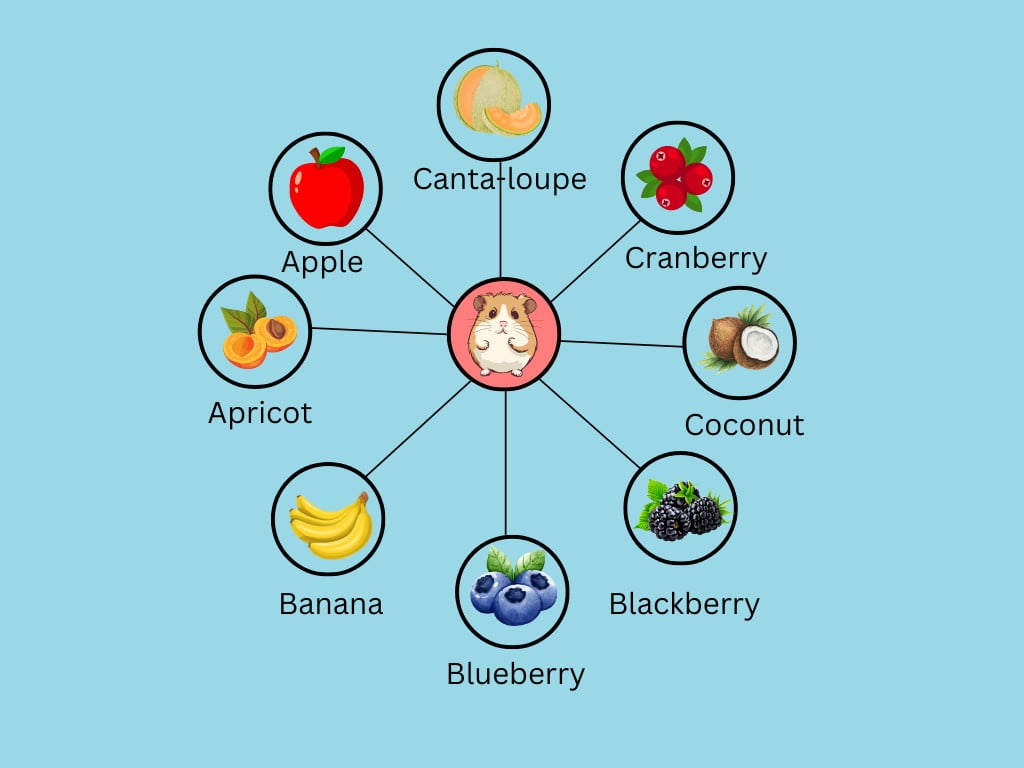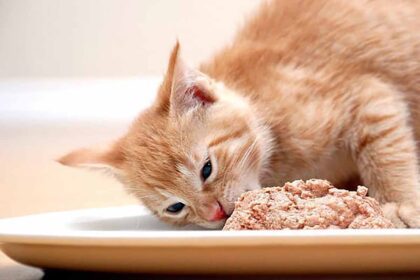Owning a hamster comes with a lot of questions, especially when it comes to their diet. One common query that pops up among hamster parents is whether these cute little furballs can enjoy fruits. The simple answer is yes, hamsters can eat fruit, but with some important caveats to ensure they stay healthy and happy.
Fruits That Are Safe for Hamsters
Let’s start with the good news. There are plenty of fruits that are perfectly safe for your hamster to feast on. These include:
– Apple, cored and peeled: Apples are a crunchy delight, but make sure to remove the core and seeds.
– Apricot, pit removed: A sweet treat without the pit is perfect for your furry friend.
– Banana, peeled: Soft and sweet, bananas are a favorite among many hamsters.
– Blueberry: These tiny berries are packed with nutrients.
– Blackberry: Another berry that’s safe and delicious for your hamster.
– Coconut, unsweetened: A unique treat that’s safe as long as it’s unsweetened.
– Cranberry: Tart and tangy, cranberries are good in moderation.
– Cantaloupe, rind removed: Juicy and refreshing, but remember to remove the rind.
– Cherry, pit removed: Sweet cherries are fine, just ensure the pit is out.
– Date: Naturally sweet, but only in small quantities.
– Elderberry: Another berry that can be given occasionally.
– Guava: Exotic and nutritious, a great occasional treat.
– Lychee: Guarantee the seed is evacuated and offer in moderation.
– Papaya: A tropical delight that’s safe for your hamster.
– Peach, pit removed: Sweet and juicy, just remove the pit.
– Pear: Another juicy fruit that’s good for hamsters.
– Plum, pit removed: Ensure the pit is gone, then it’s a safe treat.
– Pomegranate, peeled: These can be a bit messy, but hamsters love them.
– Raspberry: Soft and nutritious, raspberries are a hit.
– Strawberry: A classic favorite among many small pets.
– Watermelon, rind removed: Hydrating and sweet, just remove the rind.
Fruits That Are Unsafe for Hamsters
While many fruits are safe, there are some that should be avoided at all costs. These include:
– Citrus: Fruits like oranges, lemons, and limes are too acidic and can upset your hamster’s stomach.
– Dragon fruit: Although not toxic, it can cause digestive issues.
– Dried fruit: These often contain added sugars and can be too sweet for hamsters.
– Mango: The high sugar content can be harmful in large amounts.
– Grape: Grapes and raisins can be poisonous to hamsters and ought to be dodged totally.
Recommended Amount of Fruit for Hamsters
Hamsters are omnivores, meaning they need a balanced diet of protein, vegetables, and fruits. It’s crucial to pay attention to the proportions of each. A hamster’s daily diet should consist of about 75% protein from fortified hamster pellets, 5% treats, and 20% vegetables, greens, and fruits.
Every day, give your hamster a few tablespoons of pellets or 1/8 cup of seed mix, ensuring they eat everything and don’t just pick their favorites. Include small bits of leafy greens and other vegetables to create a tiny salad. A few times a week, add very small pieces of fruit to this salad. If the fruit piece is too large for your hamster to pick up and hold, it’s likely too much for them to eat in one day.
Steps to Add Fruit to Your Hamster’s Diet
Introducing fruit to your hamster’s diet can be a fun and rewarding experience. Here’s how to do it safely:
- Start Small: Begin with tiny pieces of fruit to see how your hamster reacts. Monitor for any signs of digestive upset or allergic reactions.
- Variety is Key: Rotate different types of fruits to provide a balanced diet and keep your hamster interested.
- Clean Up: Always remove any uneaten fruit from your hamster’s cage to prevent spoilage and mould growth.
- Stick to Fresh: Fresh fruits are always preferable to canned or processed ones, which may contain added sugars or preservatives.
Adding a little fruit to your hamster’s diet can bring them joy and nutrition. Just remember, the key to a happy, healthy hamster is variety and moderation. With the right fruits in the right amounts, your furry friend will thrive and enjoy their tasty treats!














Comments are closed.